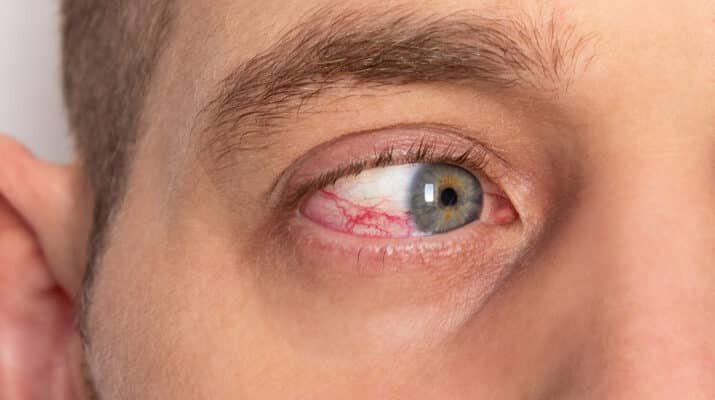Look for these signs to know if you’re in the midst of an emergency
By Deborah Jeanne Sergeant
About 2.5 million eye injuries happen in the US., according to the American Academy of Ophthalmology,
Not all of these injuries constitute eye emergencies. However, for those that are emergencies, not seeking care is more likely to result in vision loss.
It’s important to know which injuries are emergencies and which aren’t. But it’s better to err on the side of caution.
Many people believe that if their vision seems unaffected, their eye injury isn’t serious. Yaseen Morshid, doctor of optometry at Harbor Eye Associates in Oswego, said that any injury to the eye warrants professional care, “like a tree branch hitting the eye,” he said.
Although impact injuries don’t always need an extended regimen of care, they require a professional evaluation.
“If it’s something we can take care of in the office, you’ll stay in- office,” Morshid said. “If it’s a penetrating foreign body, it warrants an ER visit. We tend to be much better at getting emergencies in sooner. We’d do a phone triage to talk about symptoms and understand the nature of the condition the patient has. Typically, if we feel like it’s something that needs to be seen, we can see patients the same day. We leave some slots in our schedule for these situations.”
He added that anyone experiencing exposure to chemicals in the eye should be seen, whether the substance is a base or acid. Exposure to a base is not always safer. Most of the time, it is a good idea to immediately wash the eye with water for several minutes to flush away the harmful chemical. In the meantime, have someone call a healthcare provider armed with the chemical’s package label or material data safety sheet (MSDS). Labels and MSDS sheets can help healthcare providers better understand the nature of the injury and can guide them as to how best to treat the injury. Employers are required by law to keep MSDS sheets accessible to employees in case of emergencies such as these.
Any abrupt changes in vision should be evaluated.
“One day you see well and the next day it goes down and blinking isn’t getting rid of blurriness,” Morshid said. “Flashes and floaters in the eye can mean retinal tears. One of the first signs of macular degeneration is reduced vision and seeing straight lines as wavy or distorted. See an eye doctor for visual changes rather than going to the ER. Sometimes, it’s not as serious of an issue.”
When an ER visit is warranted, a referral from an optometrist can help patients get seen faster, according to Quynh Le, doctor of optometry also at Harbor Eye Care in Oswego. She added that issues including “double vision, sudden blackening, pain, flashes of light and a shadow over the vision” should prompt professional care.
Especially for people older than 50, these types of issues can indicate a serious problem.
“If you are experiencing these symptoms, you shouldn’t be driving and should have someone else drive you to receive care,” Le said.

